Tim invited me to submit some ideas for ways to spend the Work For Cash program he’s administering this spring. There is a focus on getting the money into the hands of women. Many of the traditional WFC programs are things like digging out the sewers or sweeping the streets, and those are inappropriate for burqa clad women who are likely to have small kids they must keep with them.
Tim reminds me that the program is bound by constraints that he doesn’t yet completely know, he’ll find out this week, so he won’t make any promises or plans yet. If the WFC thing doesn’t work out, we’ll still do most of these things but will have to raise funds otherwise and the program will stand up more slowly (ie, we’ll have to sell the product and generate some revenue to reinvest in more raw supplies). If you have more ideas, please comment!
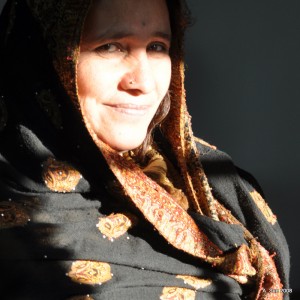
In the Work for Cash program, women will be invited to the FabLab to be paid to do the following :
1) Document scanning. Digitize paper records using bed scanner or camera. May be public records such as the mountain of land title deeds or possibly similar types files (we will have to solicit customers).
2) Make flash cards for school children. (Mostly basic arithmetic). Women learn to use the printing press or wood / rubber stamp making.
3) Make educational props. Clocks with movable hands, giant rulers, large painted flash cards with Pashto / English alphabet.
4) Sew book bag / satchel / purses, with custom embroidery or markings or prints.
5) Sew / embroider (by hand, machines, or with computer controlled machines) “A [picture of apple]” kinds of quilts and fabric books in Pashto. May use other machines in the lab to make the objects out of felt or other material instead of embroidering with thread.
6) Make wind lanterns from empty water bottles. (Requires collecting and cleaning bottles). Wind lanterns spin in a breeze causing internal lights to light up. They can be strung up outside doorways or near wells and other hazards.
7) Make and configure FabFi antennas for long range wireless internet connections terminating in umbrella wireless hotspots. Install on site, possibly, depending on mobility of women.
8) Create and perform puppet / shadow puppet theater show on topics of basic health, local fables, IED (Improvised Explosive Device) and UXO (Baba Tim Comment: unexploded ordinance is a huge problem and they kill hundreds of children per year in Afghanistan – France has the same problem with ordinance left over from World War I. For those of you schooled under Jimmy Carters Department of Educatuon that happened in the early part of the last centruy and was a very bad war even though mostly white European males were killed in it – by the hundreds of thousands mind you.) awareness or just entertainment.
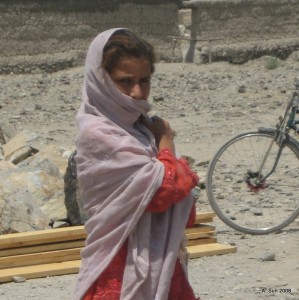
In addition to immediate pay for work described, in some cases women will gain a skill that may be employable in the long term. I propose giving away the product to the local schools or selling at a very low cost. These products and services were requested by locals and the Fab Lab mentors can help these women establish small cottage businesses from these activities.
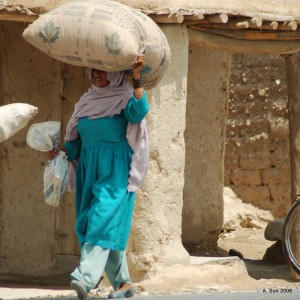
The Fab Lab is an existent infrastructure at the edge of Jalalabad. In addition to raw supplies for the above projects, the Woman’s Resource Room needs to be fitted out to provide a safe and comfortable place for the women to work and sanctuary when there are users of other genders visiting or using the lab. This room is approximately 25′ x 18′ with windows on two walls and an en suite bathroom with sink and toilet. One set of windows opens onto a small concrete walkway which is up against an interior compound wall. The other set of windows looks out small concrete walkway/porch leading to 1/4-1/2 acre vegetable garden. There is a split air conditioner and heater installed in the room. The room is currently empty but clean and freshly painted.
We need to add: Thick wall to wall carpet, comfortable couches and floor cushions. Some low tables. A computer controlled embroidery machine, a sewing machine, some computers, a bookshelf and whiteboard, a projector or TV for lessons. All the print and video educational material we can find. One wall of open-front cubby holes. A shared supply of sewing and knitting needles, scissors, rulers, and so on. An endless supply of female sanitary products, soap, and general toiletries.
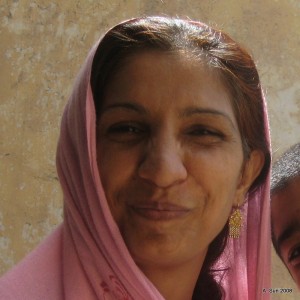
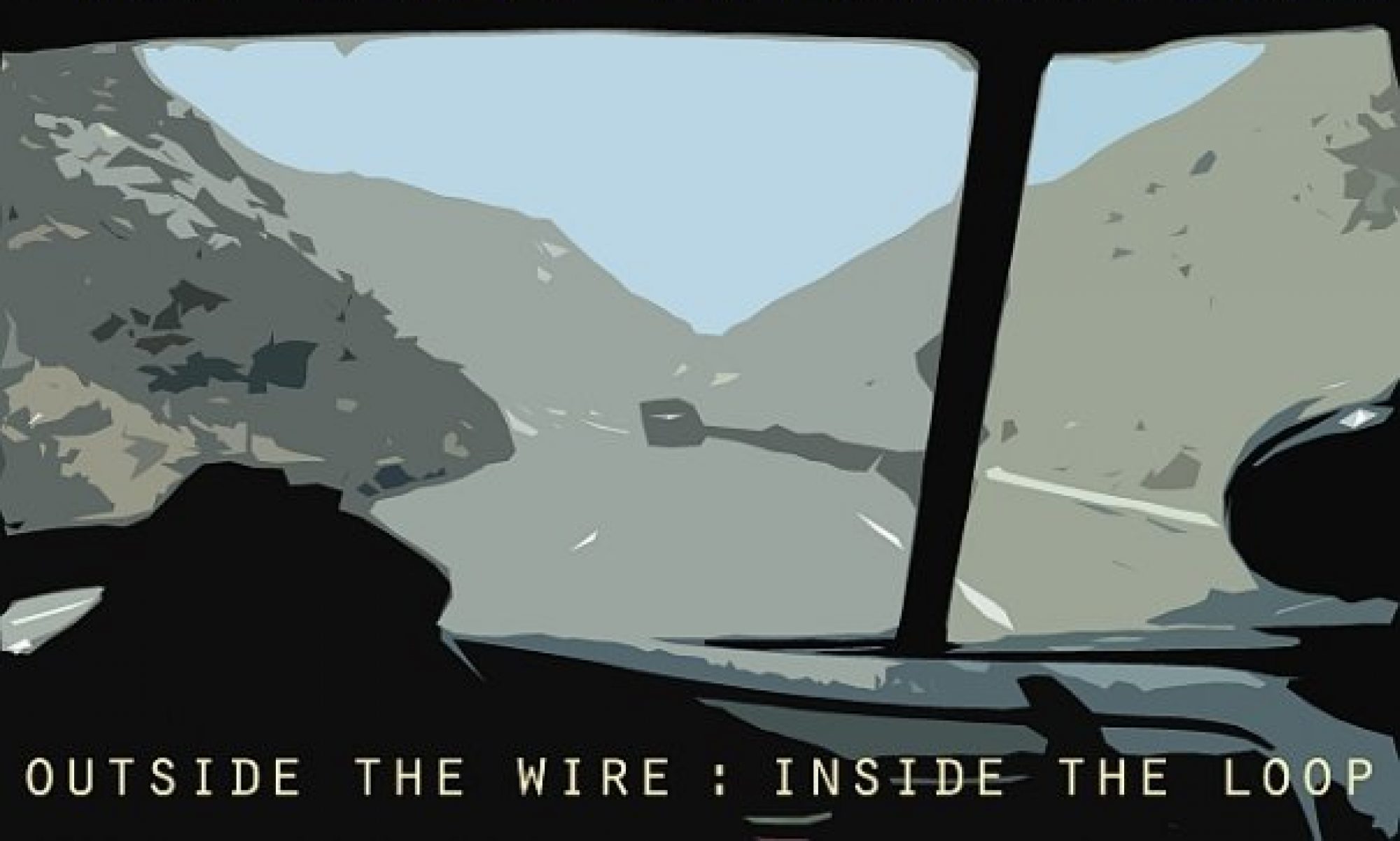


Hey Guys
One wall of open-front cubby holes.
You could use the same technique used by the fablab to make the wifi antenna’s. Just 5 or 6 pieces of flat stock tab cut together, but bigger.
Keep up the good work..
Oh and what about making LED desk lamps..lots of soldering, and wiring craft but it can be done from home with minimal tools. Does require electrical infrastructure though.
To answer this request I asked around about tech or semi-tech jobs that are primarily female dominated (because of course there’s weaving, sewing, cleaning, etc). Most are surprising except to people in those industries, they are:
– heavy equipment operators (apparently women are far more careful drivers of those giant mining machines)
– circuit board soldering, assembling (yeah, imagine hundreds of little Thai ladies with their tiny hands and sharp eyes soldering those tiny components)
– Lego employs older ladies to polish lego molds with q-tips – that’s how the plastic parts pop out so perfectly with no post processing
– riveters and similar on large equipment, porta-potties, etc. (think Rosie the Riveter and her cohorts)
– computer administration (apparently in Americas/Europe, maintaining the home computer is the domain of the women more often than the man, especially among the 55+ crowd)
Generally speaking, anything that involves periodic updates and maintenance, the care and organization of lots and lots of dissimilar things, gentle control touches… women are preferred.
Making lamps is a good idea, especially a crank-lamp or something. The fablab in Pabal, India is particularly prolific and can likely help.
http://fablabinnova.blogspot.com/2007_10_01_archive.html
Tim’s in trouble now. It’s 4:15am and I’ve just spent hours chatting with a male Afghan cohort who says,
“i am not spending money to Clean Jalalabad city i will face on how can imprve the Alternative livelihoods of woman in Jalalabad”
We iterated on a million ideas all of which he’s sure he could get a sister-in-law or friend or friend’s wife to jump on tomorrow. I have to get some sleep, but I’ll be sure to write it up. If he doesn’t jump on it before me.
He schooled me tonight, too. For example, when talking about having a cadre of women working as “Health Facilitator”‘s, I asked what that role is.
He’s clearly been thinking about this for some time. He pointed out that teaching people to do stuff is fine and all but they have to leave with the skill and the tools, or at least access to the tools. I’m paraphrasing, and he was excitedly listing things like tailoring training where you earn your sewing machine and/or have access to a facility with sewing machines for your use. A lot of these ideas closely align with the vision for the fab lab.
Like I said, I have to get a little sleep… let me just also say: solar meat dryers.
Tim is really in for it. Y’all may never hear from him again, he’s going to be so busy.
Amy —
You know what would be a great project is selling women’s shoes. Totally random (or maybe not so much)… seems to be a universal obsession : ) We LOVED the shoes in the Afghan marketplaces… some real export opportunities there. Even if they couldn’t make themselves, maybe a microfinance operation to market and sell them on the internet and then ship. I’d personally buy more than a few!
“…and then ship…” – I’ve looked in to this briefly for all the other stuff that is made and haven’t figured out how to ship for reasonable sums without making use of the APO system.
It seems the NGOs that do rugs, scarves, etc. do big (huge) shipments via DHL and similar to amortize shipping costs, or bring the stuff as baggage when their personnel fly. Ideally the fab labs and related mini internet businesses need to be able to sell single $10-ish things and have shipping not overwhelm that price.
Maybe someone out there knows more about the Afghan international shipping system… or is interested in getting in to the international fab lab products point of sale gig?
Two women came into the lab looking for sewing instruction today. Might want to fast track the new machine.
I’ll be back in July, with a much clearer view of what’s what.
Copy my post on Amy’s blog
A long time ago I set up a sewing group for young mothers
We met in a community house
Women and children were seperated into two groups.
Women learnt to do patch work I -for the young mothers misfortune was there teacher my demonstration blocks and blocks that the mothers weren’t going to use were put into a quilt
The children were in another group were they learnt thru play the playgroup style this group was supervised by a mother this went on a rotation basis
A quilt was made and raffled at the end of I think 7 weeks
the money from the quilt went to community house the sewing group was set up in
Something like that could work The women could be paid the same rate as the women mentioned by Amy who work for Afghan hand
I belonged to a group that sent treadle machines to the Pacific Islands- From NZ- these are very heavy beasts they could be possible sourced in India they are probable still made and used there purchase costs and shipping should be cheap well managable
I have know of a group that operates in a prison the machine — was I believe dispensed with — mainly because of repair costs—? everyone wanted to play with the dials — there were other issues —
Amy mentioned desiel — being problematic
Maybe start from where the women are good old fashioned sewing needle
Seed money could be used to kick the project off
If the women are going to be doing work and getting paid for it I think it would be nice if the output made a profit and was set up as a business . The other intrinsic spin offs such as socialising and learning would be great The business could be Owned and operated by a co-operative of women and a joint partner such as fab lab.
If anyone is interested I could work up a business model/proposal
I thought if the issue in
http://blog.freerangeinternational.com/?p=1448
items 4 and 5 might be a good place to start
sorry its long– short is not my style
This is a great initiative!
just a suggestion – I didn’t notice any foodstuffs in the list above,
but surely Afghani women have lots of traditional recipes passed down?
Making up dried spice and herb mixes for traditional meals, which could be bagged in handmade bags – it would produce a small light very portable product
Another option is preserves, chutneys etc.
Also traditional herbal balms and cosmetic treatments which women make for themselves – Hair oils, traditional perfume products etc
All these could use ingredients grown in the garden or sourced locally, and there could be a little story in each packet, associated with some of the herbs/mixtures and local folklore
This is something which also celebrates indigenous culture/folklore, especially womens culture, which rarely gets much attention. I’m sure every Afghani woman you work with is a treasure store of folklore and traditional recipes, and it would be very empowering to enable them to share all this with the world